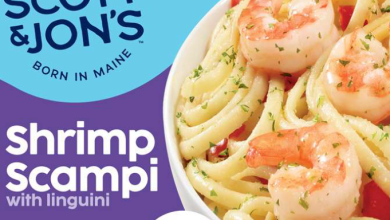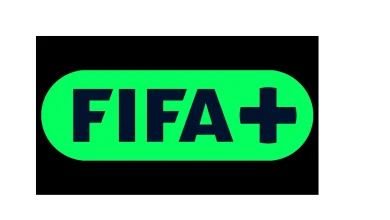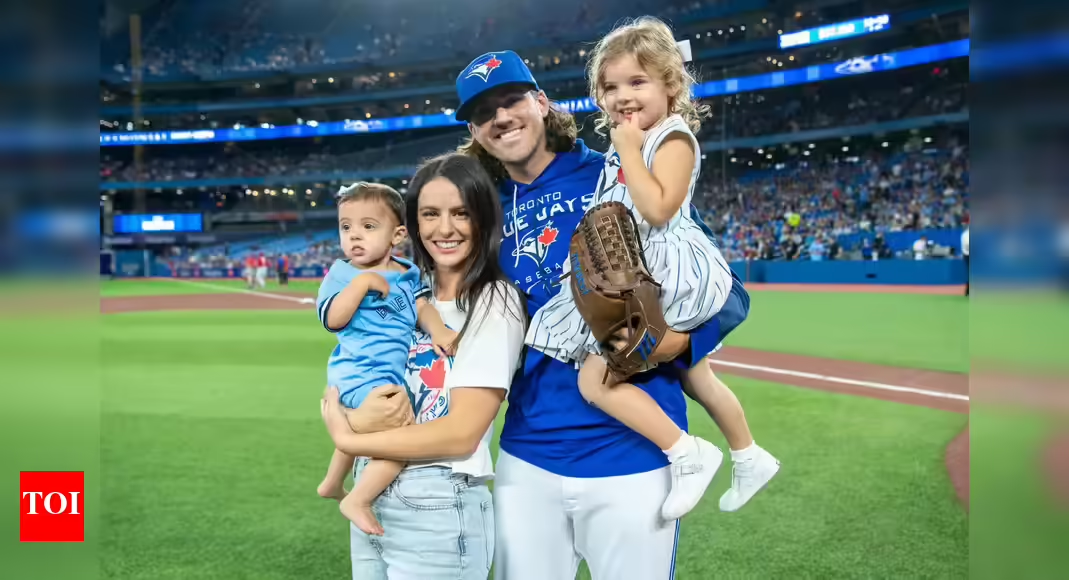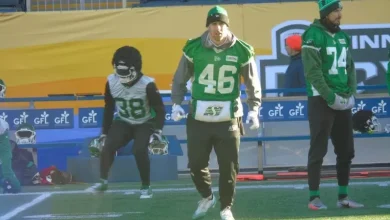Rocket vs. Senators recap & highlights: Adam Engström dominant in statement game
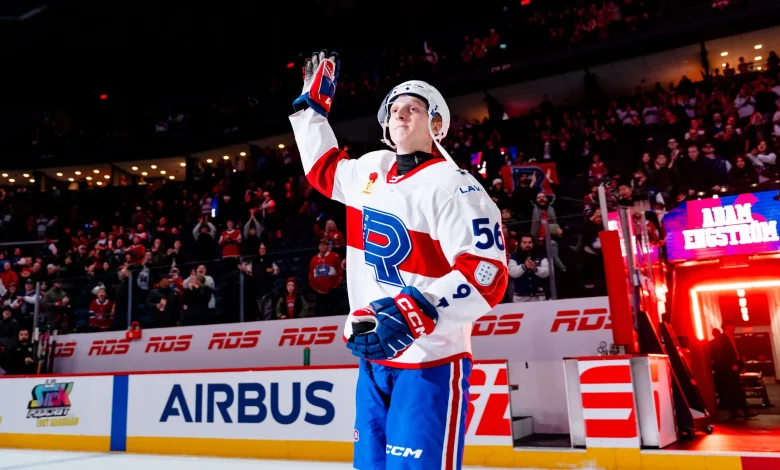
In the locker room after the Laval Rocket’s 7-2 win over the Belleville Senators on Saturday at Place Bell, Adam Engström was talking about his career-high five-point performance, with one goal and four assists.
“I’m working hard every day in the D zone. When you work harder, maybe you build yourself a little bit of karma,” he said. “Sometimes you’re lucky and today I was a little bit lucky.”
A few minutes later, his head coach Pascal Vincent was told that Engström called himself lucky.
“Who did?,” Vincent asked before being told it was Adam again. “Engström?,” he asked again, dumbfounded.
“He’s being dominant out there,” Vincent said. “He’s controlling the game. He’s using his edges, skating, his ability to escape, shooting the puck. It’s what, three games with of goal now? That’s the end part, but he’s just defending so well and just seeing the game. It seems like it’s a bit too slow for him right now. So I don’t agree with him. He’s not lucky. He’s just good.”
Nothing showed Engström’s confidence like his goal, a play that put the Rocket up 3-1, and was the eventual game-winning goal. He took the puck, took a couple of turns in the offensive zone, and then fired the puck past the goaltender.
Adam Engström is just out there trying stuff for fun and scoring goals
[image or embed]
— Scott Matla (@scottmatla.bsky.social) November 22, 2025 at 4:36 PM
“He’s always been that type of player that makes plays and can shoot the puck,” said Rocket forward Sean Farrell, who had two goals off of Engström passes. “Really a special player, happy he’s on our team and he’s had a great stretch this week.”
The physicality between the two teams started early, with a scrum less than four minutes into the game leading to a Senators power play. The Rocket had a power play of their own, but both had very little in the way of offence.
The game remained scoreless until Engström fed David Reinbacher for a one-timer where he wired a slap shot over the shoulder of Belleville goaltender Jackson Parsons. It was Reinbacher’s second goal of the season, and it caused a long delay as it prompted the annual Teddy Bear toss.
Shortly after the delay, Belleville tied the game when Philippe Daoust beat Jacob Fowler with a shot from the left circle.
The Rocket appeared to take the lead around five minutes into the second period when Laurent Dauphin made great moves to get around the Belleville defence but was stopped by Parsons. His momentum brought him into the goaltender, and as the puck squirted out to the slot Alex Belzile put it in the net.
However, the goal was disallowed for goaltender interference even though Dauphin was physically backing up out of the crease at the time of the goal being scored. Shortly after that, Djibril Touré and Lucas Condotta took double minors for roughing, where Touré seemed to throw punches before Condotta could remove his gloves while the two were engaged.
Then, Alex Belzile and Dennis Gilbert dropped the gloves for real a little over a minute later.
Laval took the lead for real just 1:21 after the Belzile fight. Another save by Parsons in tight saw the puck go out to the top of the slot where Filip Mešár picked it up and wired a long wrist shot into the net left open. It was Mešár’s third goal of the season.
Just 29 seconds later, Adam Engström made several twists and turns before firing a shot past Parsons. It was his fifth goal of the season and his third straight game with a goal.
Wyatt Bongiovanni made it 3-2 on the power play in the second period before the Rocket took full control of the game in the third period.
The Rocket started the third on the power play, before getting 57 seconds of five-on-three time due to a second Belleville penalty. That would only last 17 seconds before Owen Beck took a penalty of his own but on the ensuing four-on-three power play, Engström found Farrell for his first of two goals on the day.
All that happened just 53 seconds into the frame.
Just 45 seconds later, Reinbacher scored his second goal of the game when he potted a Dauphin rebound. Touré took another roughing penalty shortly after that, and Laval made them pay again when Farrell scored his second power play goal of the period at the 3:43 mark.
The last penalty would get Touré booed and taunted aggressively by the Place Bell crowd for the rest of the night.
“It’s important when they’re doing stuff like that, to get on the power play and be ready to execute,” Farrell said about making the Senators pay for their aggressive antics. “I’m glad we got to get a couple tonight.”
William Trudeau added the Rocket’s seventh goal with an insane bar-down goal from the slot.
Laval swept the weekend series and are two points up on the Syracuse Crunch for first in the North Division. They now have a full week off before heading to Lehigh Valley next Saturday to start a stretch of four road games in five, including two more in Belleville against the Senators.
“It’s the best feeling,” Engström said about the two wins. “It’s getting to be a big rivalry right now, I feel like.”
Full Highlights
Notes
- Owen Beck had a three assist game with five shots on goal
- 11,588 teddy bears were thrown on the ice after Reinbacher’s first goal

